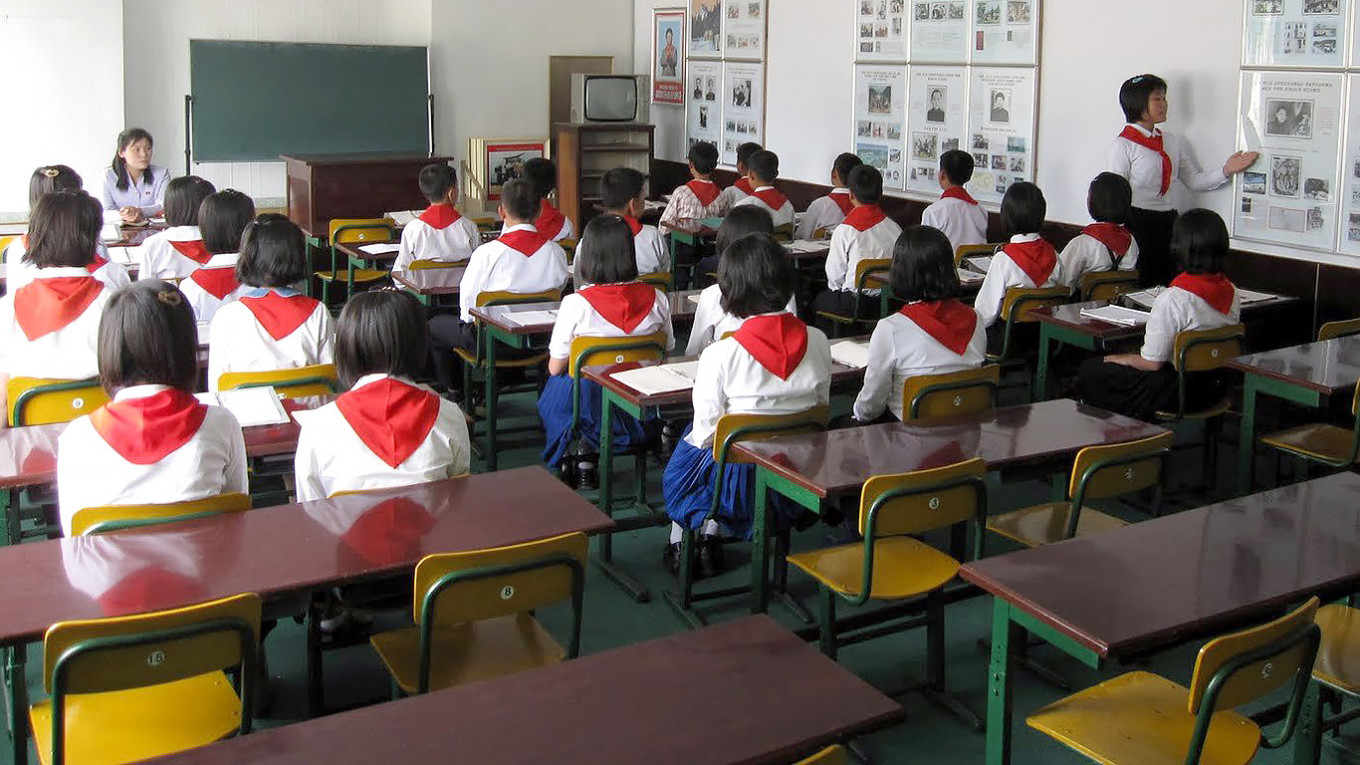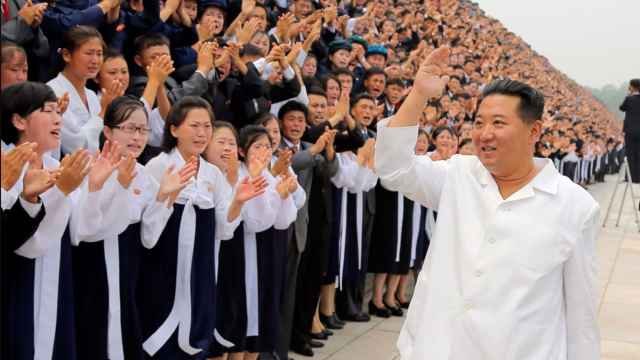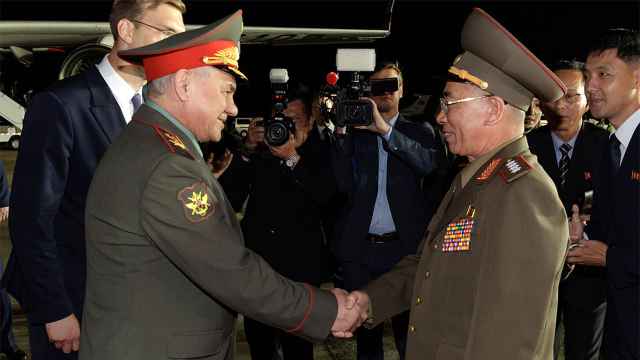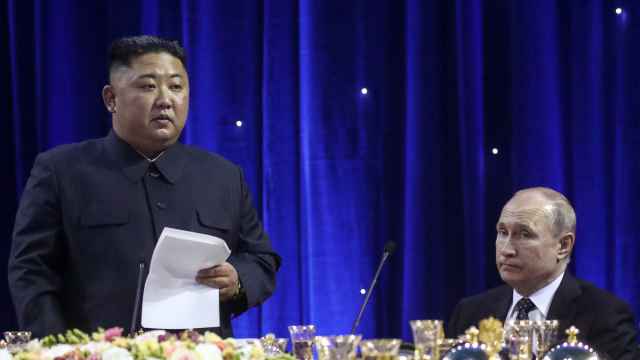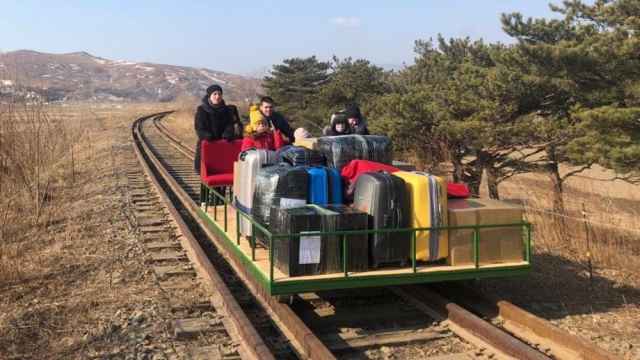Authorities in North Korea have made Russian language a mandatory subject for children beginning from elementary school, a senior Russian official said Thursday, as both countries strengthen their relations amid mutual isolation from the West.
“I know that Russian has been introduced in DPRK schools as a mandatory language starting in fourth grade,” said Russia’s Natural Resources and Environment Minister Alexander Kozlov. He was referring to North Korea’s official name as the Democratic People’s Republic of Korea.
Kozlov, who also sits on an intergovernmental commission established by Moscow and Pyongyang, said Russian ranks among one of the most popular foreign languages in North Korea, where around 600 students are currently studying it.
The minister added that 96 North Korean citizens had enrolled at Russian universities in the previous academic year.
There was no immediate confirmation of Kozlov’s comments from North Korean authorities, nor was it clear when the mandatory lessons were expected to begin.
Russia’s Embassy in Pyongyang had said last week it was actively promoting Russian language education for North Korean university students.
The embassy said two Pushkin Institute instructors have been in Pyongyang for a month as part of a two-month program, holding Russian language and culture classes for around 250 students.
Meanwhile, Kozlov said more than 3,000 Russian schoolchildren are learning Korean as either a second or third language, and around 300 Russian university students are studying Korean.
North Korea and Russia have sought to boost ties since the full-scale invasion of Ukraine.
President Vladimir Putin and North Korean leader Kim Jong Un last year signed a mutual defense pact, while Pyongyang dispatched thousands of soldiers to help the Russian army fight off Ukrainian troops after they captured territory in the western Kursk region.
A Message from The Moscow Times:
Dear readers,
We are facing unprecedented challenges. Russia's Prosecutor General's Office has designated The Moscow Times as an "undesirable" organization, criminalizing our work and putting our staff at risk of prosecution. This follows our earlier unjust labeling as a "foreign agent."
These actions are direct attempts to silence independent journalism in Russia. The authorities claim our work "discredits the decisions of the Russian leadership." We see things differently: we strive to provide accurate, unbiased reporting on Russia.
We, the journalists of The Moscow Times, refuse to be silenced. But to continue our work, we need your help.
Your support, no matter how small, makes a world of difference. If you can, please support us monthly starting from just $2. It's quick to set up, and every contribution makes a significant impact.
By supporting The Moscow Times, you're defending open, independent journalism in the face of repression. Thank you for standing with us.
Remind me later.


